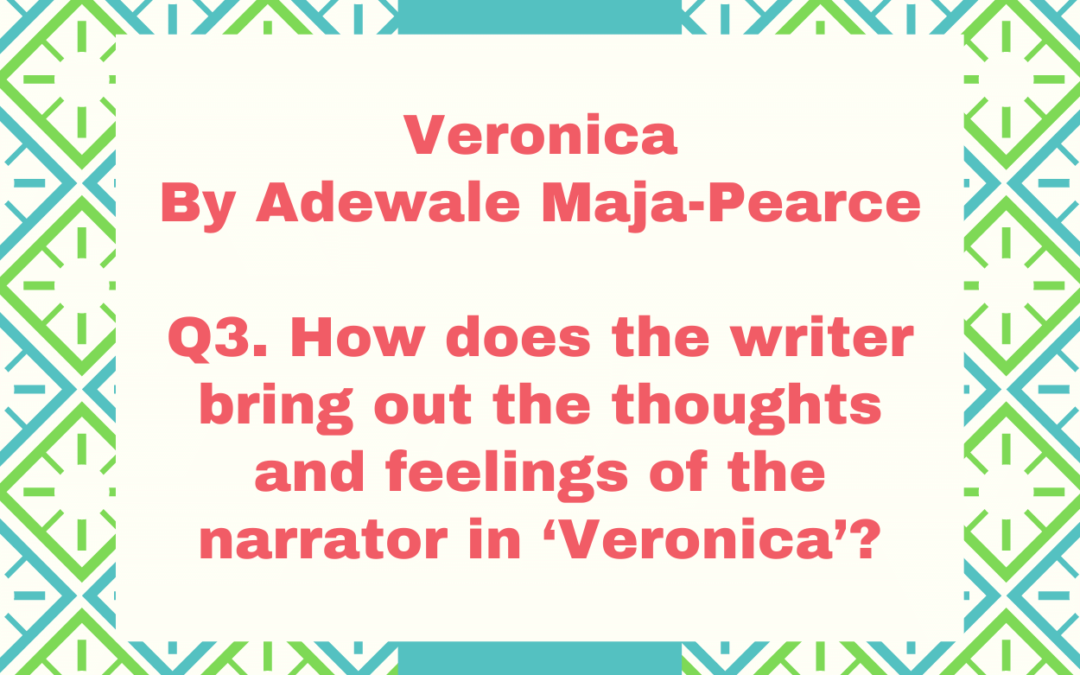Edexcel English IGCSE: Veronica
Q3. How does the writer bring out the thoughts and feelings of the narrator in ‘Veronica’?
In your answer, consider:
- the contrasts between Veronica’s and the narrator’s life;
- the narrator’s feelings towards Veronica and the village;
- the use of language.
You should refer closely to the passage to support your answer. You may use brief quotations.
Edexcel English IGCSE Model Essay by an Expert
The story of Veronica is told to the reader through the lens of Okeke’s thoughts and feelings. He highlights the differences between their lives, and expresses his feelings towards Veronica and the village.
Okeke is painfully aware of the differences between his life and Veronica’s. There is a slight sense of embarrassment when Okeke describes his success in the city: the paragraph contains colloquial phrases such as “well” and “made good”, as he downplays his achievements. The narration quickly returns to Veronica, showing that his priority is to tell her story, not his own. It is clear that Okeke makes many changes to his life while he is away from the village. He repeatedly asserts the contrasting immutability of village life: he says of the village that “nothing ever changed” and of Veronica that “nothing had really altered”. The repeated use of the negative word “nothing” shows that his attitude towards village life is not nostalgic, but resentful and disapproving.
Okeke feels helpless towards Veronica. When he is young he, curses his “own physical inadequacy” to protect her from her violent father. Later, this feeling of inadequacy is transferred to Okeke’s inability to persuade Veronica to leave the village. His frustration at her refusal is evident in his gesture of breaking a twig and throwing it in the stream. It shows that he cares about Veronica and her life, and is uncomfortable at the growing differences between them. This helplessness continues until Veronica’s death, when Okeke is unable to save her. He attempts to comfort her, and possibly himself, with the possibility of saving her: “I’m here now, and you’re going to be alright”. However, again she refuses his help, and dies as she wishes. Okeke is evidently devastated by this: he cried “for the terrible waste.” His knowledge that she could have been saved, had she followed his advice, surely contributes to this sense of wastefulness.
Unlike Veronica, Okeke does not have a strong emotional connection with the village, except for its associations with Veronica. He describes his opportunity to leave the village as “the break I had hardly dared hope for”. The word “break” has connotations of escape from prison, suggesting that he sees the inhabitants of the village as trapped against their will. When he returns to the village after years away, his description of the village contains grotesque imagery and emotive vocabulary, showing his disgust at his former home: “squalor”, “crawling with disease”, “surviving” and “acute poverty”. Once Veronica dies, he leaves the village “for the last time”, showing that his only connection with the village was caused by his affection for his friend.
Okeke experiences frustration and helplessness in his relationship with Veronica, and feels disgust towards his home village. He feels conflicted between relief for his personal escape and pain for those he left behind.




